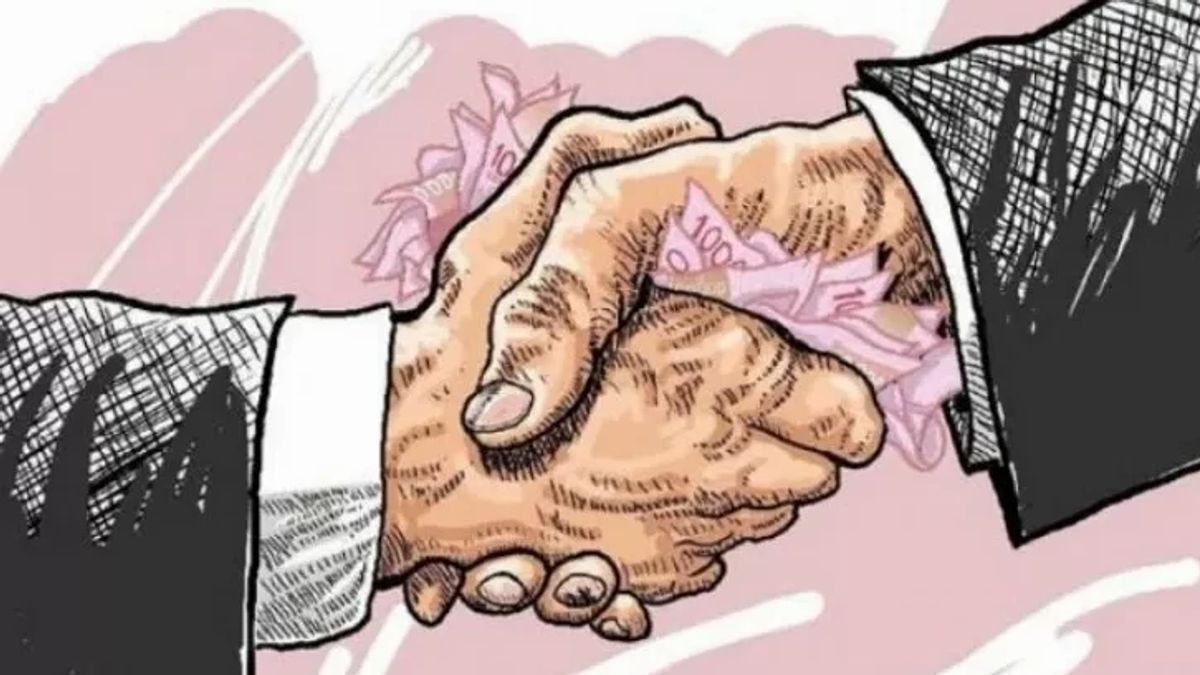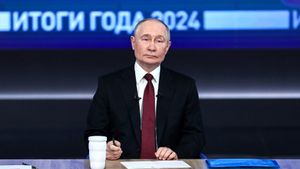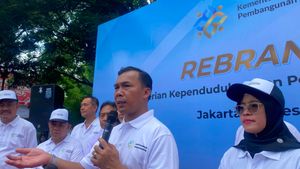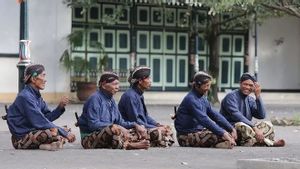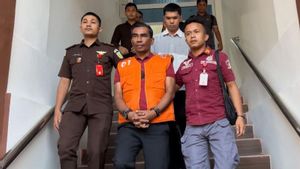JAKARTA - Indonesia Calling (IM) 57+ Institute criticized President Prabowo Subianto's statement regarding forgiveness for corruptors as long as they returned state money. This idea is considered a blunder because it will not solve basic problems in an effort to eradicate corruption.
"The forgiveness will have the potential to prevent the deterrent effect in eradicating corruption so that it does not reduce and even increase the potential for corruption," said Chairman of the IM 57+ Institute, Lakso Anindito to reporters in a written statement quoted on Friday, December 20.
Lakso assessed that Prabowo should have said that the return was not a pardon but aggrieved the punishment. "This can be a blunder because this has the potential to not solve the basic problem that corruption does not happen only in the past but at this time," he said.
"In addition, the technical level will provide obstacles. In fact, when returning to get relief, it is more rational to do it," continued Lakso.
Even so, Lakso saw that Prabowo had indeed touched on the issue of asset recovery and had to be appreciated. This is because law enforcers often forget this.
However, to realize it needs a concrete direction. "This is to follow up so that leak concerns do not just become jargon. This is also in accordance with the direction of the last presidential speech which highlighted the issue of asset recovery," explained Lakso.
As previously reported, President Prabowo Subianto asked corruptors to return the money that had been stolen from the state. He said this step could make them perhaps forgiven.
Prabowo made this statement when he met Indonesian students at Al-Azhar University, Cairo, Egypt, Wednesday, December 18.
"I've been in these weeks, these months, I'm trying to give myself the opportunity, give me a chance to repent. Hey corruptors, or those who have felt like stealing from the people, if you return those you stole, maybe we will forgive, but return them," Prabowo said as broadcast on the Presidential Secretariat's YouTube, Thursday.
"Later we will give it a chance. How to return it secretly so it doesn't get caught. Return it, but return it," he continued.
Meanwhile, Coordinating Minister for Law, Human Rights, Immigration and Corrections (Menko Humham Imipas) Yusril Ihza Mahendra said Prabowo's statement was a strategy to eradicate corruption. He mentioned the United Nation Convention Against Corruption (UNCAC) which was ratified into Law Number 7 of 2006.
"Actually, a year since the ratification, we are obliged to adapt our Anti-Corruption Law to the convention," said Yusril in a written statement, Thursday, December 19.
"However, we are late in carrying out this obligation and now we want to do it. The emphasis on efforts to eradicate corruption according to convention regulations is prevention, eradicating corruption effectively and recovering state losses or asset recovery," he continued.
BACA JUGA:
Yusril said that Prabowo's statement was an illustration of changes in the philosophy of punishment based on the National Criminal Code in early 2026. The imposition of a crime will not emphasize revenge or a deterrent effect but corrective, restorative and rehabilitative justice.
"If only the perpetrators are imprisoned, but the assets resulting from corruption will still be controlled or stored abroad without being returned to the state, then law enforcement like that will not have many benefits for economic development and improving people's welfare. If they return the money from corruption, the perpetrators are forgiven, the money goes to the state budget to prosper the people," said Yusril.
"So law enforcement in dealing with corruption must be linked to economic development and improving people's welfare, not only to imprison the perpetrators," he explained.
The English, Chinese, Japanese, Arabic, and French versions are automatically generated by the AI. So there may still be inaccuracies in translating, please always see Indonesian as our main language. (system supported by DigitalSiber.id)
